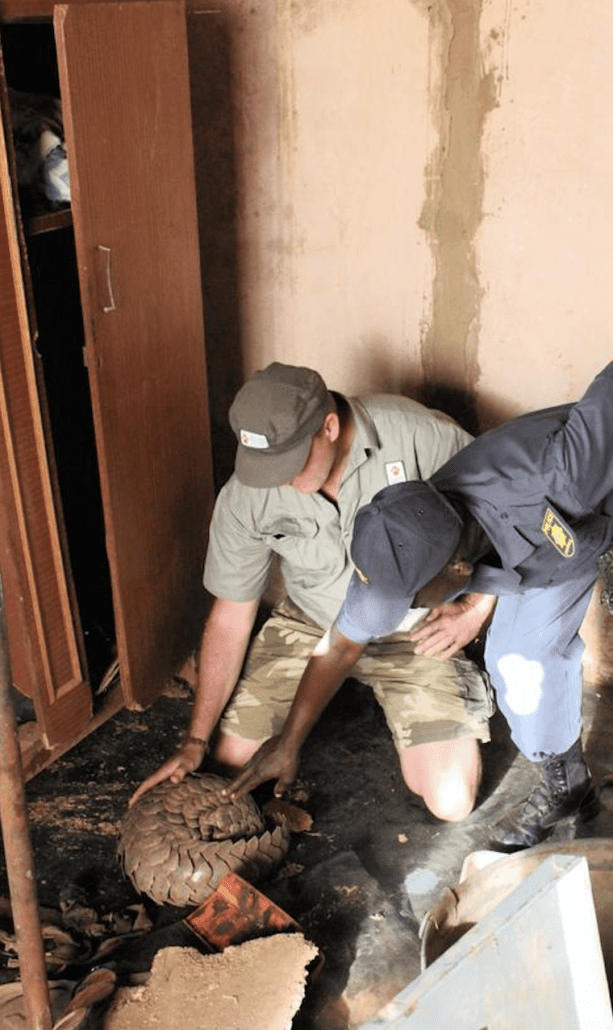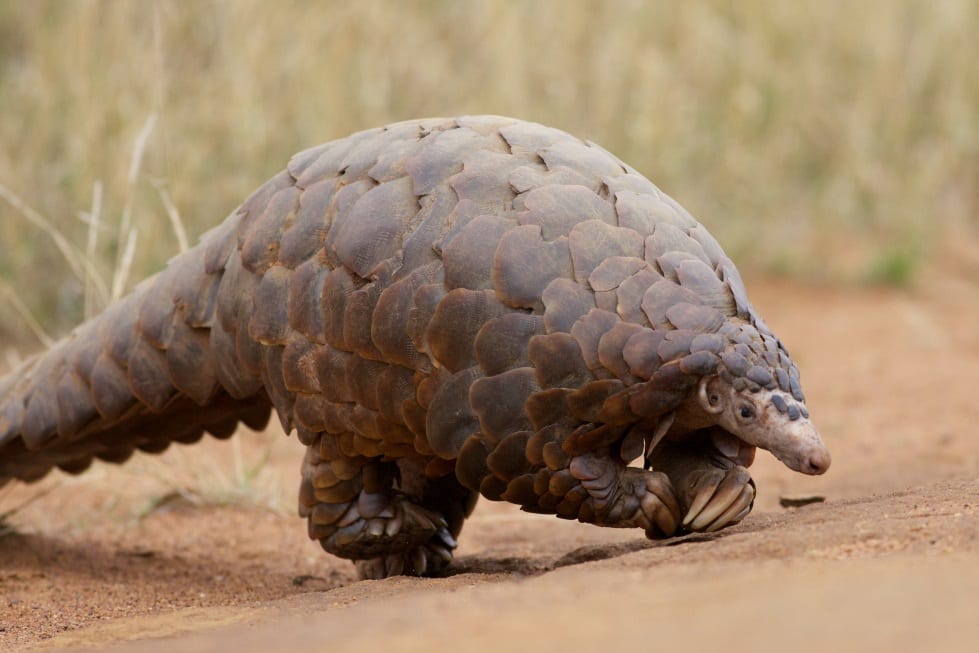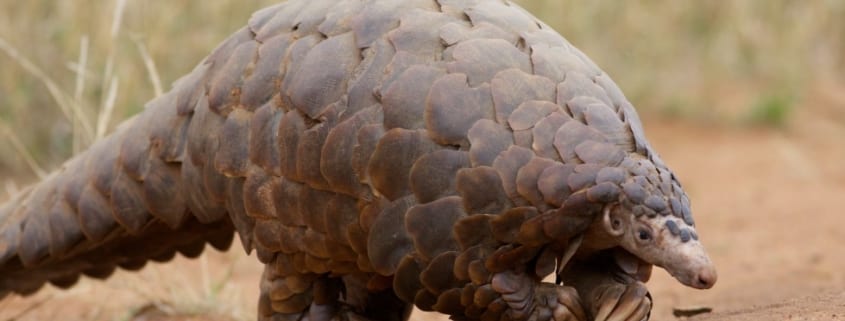Endangered Species Day: Louis the Pangolin
On this Endangered Species Day, Rainforest Trust wanted to share a story from Oldrich Van Schalkwyk. Oldrich is a dedicated Conservation Fellow who recently helped organize a sting operation to rescue a pangolin being offered for sale.
Unfortunately, pangolins are the most trafficked mammal in the world and, as such, are on their way to extinction. Poachers value them in particular for their scales, believed to cure a variety of diseases in traditional Chinese medicine. Due to the rapid decline of Asian pangolin species, poachers have started targeting African pangolin species to sell in Asia.

Oldrich finds Louis under a cupboard. Photo by Endangered Wild Trust.
Earlier this month, Oldrich, a program manager for Endangered Wildlife Trust (EWT), caught word that a Temminck’s Ground Pangolin was being offered for sale in a village in Limpopo, South Africa. A brave informant, who then helped with the sting, provided this information. That informant began a fake negotiation with the sellers while Oldrich, EWT and local rangers planned the sting. They intended to rescue the pangolin and get him to safety.
The sellers were anxious to make the trade and the time window for rescue was closing. The sellers made it clear that if the sale didn’t go through within the hour the pangolin would go to someone else. So the team arrived at the scene as soon as possible. But the suspects fled before the team could arrest them.
“When you rescue animals from these situations, it is important to remember that you are dealing with organized crime. The animal lives are in danger, but human lives may also be in danger,” said Schalkwyck. “When I arrive at a scene like this, I am initially on “autopilot” and focused on following the proper legal procedures, because the animal is evidence.”
Eventually, woman and child in the house led the team to a small cluttered room. Among the wreckage, Oldrich found the distressed pangolin hiding under a cupboard.
“The room was filled with chainsaw blades, it was awful. Once the scene was secure, there was a sense of urgency to get him to safety,” said Schalkwyk. “Though he seemed to be in relatively good condition, we wanted to get him a medical examination, because the wounds are not always visible.”
Upon rescue, Louis (the pangolin) was under immense stress and dehydrated. The team rushed him to Medike Nature Reserve, a Rainforest Trust-funded property, where he could eat, drink and rest. The following morning, the African Pangolin Working Group picked up him to begin full rehabilitation. They named “Louis” after the South African town he is from, Louis Trichardt. After rehabilitation, they will release him back onto the reserve. Rangers can then continue to monitor his health.
“Now we want to release him onto the Rainforest Trust property because it is the right habitat and has an active patrol,” said Schalkwyk. “Our researchers will continue to watch him before his hard release into the wild.”
For over 30 years, Rainforest Trust has worked to safeguard habitat for endangered species like the pangolin. Our Fellows, like Oldrich, will continue to dedicate their work in the field to ensuring the long-term survival of these species.

The Vulnerable Temminck’s Ground Pangolin. Photo by Daivd Brossard.





